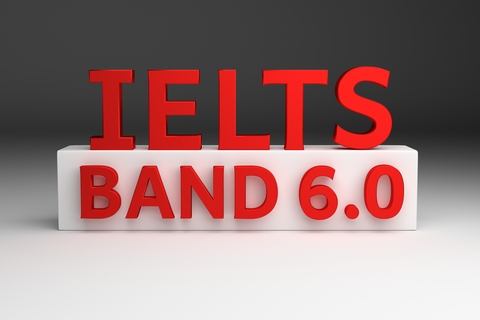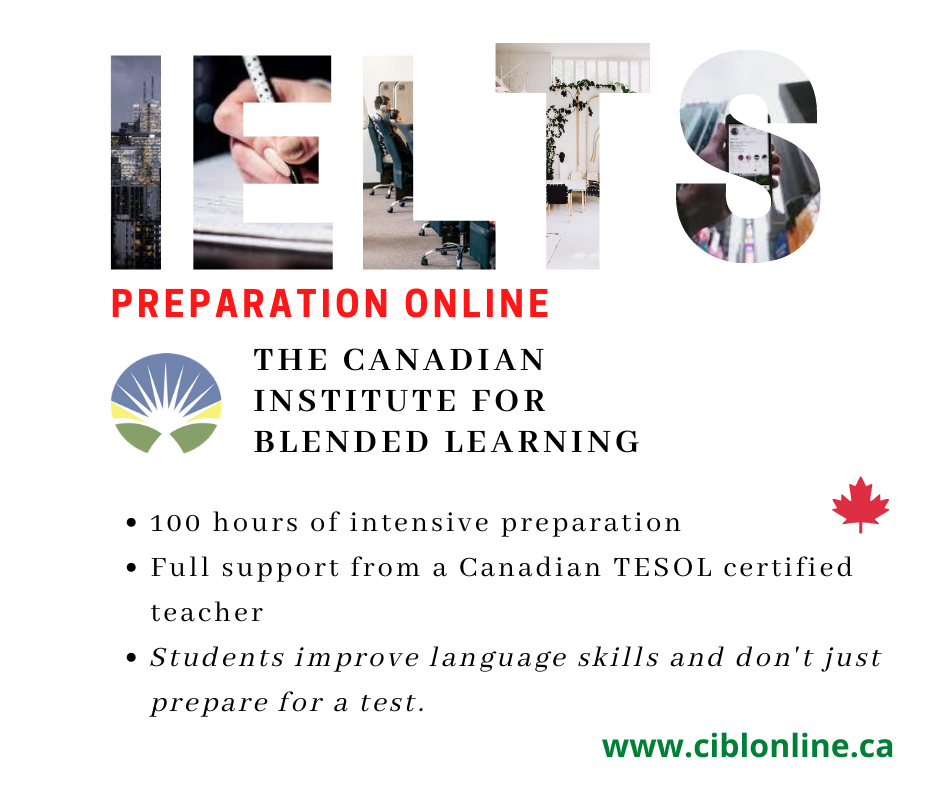Canadian Experience Class
-
After you have lived in Canada for some time, you may have obtained the necessary English and/or French skills, and valued skilled work experience. This experience has immersed you into Canadian society. The Canadian Experience Class (CEC) was created to help people like you who will have a valuable role in the Canadian economy.
If you are a temporary foreign worker, a foreign student, or have skilled work experience in Canada, you may be in a position to move from temporary to permanent residence under the (CEC) Canadian Experience Class.
The Canadian Experience Class is another stream, now included into Express Entry System. In order for you to apply under CEC an Express Entry Profile must be created. Once this profile is complete an application can be submitted to the pool.

Complete this form, and submit to our professional staff, you will be contacted within 2 business days by our company with a solution Apply today!
-
You must:
- have at least 12 months of full-time (or an equal amount in part-time) skilled work experience in Canada in the three years before you apply,
- have gained your experience in Canada with the proper authorization,
- meet the required language levels needed for your job for each language ability (speaking, reading, writing and listening),
- plan to live outside the province of Quebec.
Self-employment and work experience gained while you were a full-time student (for example, on a co-op work term) does not count under this program.
To be considered for the Canadian Experience Class, you need to have Canadian skilled work experience within three years of applying. According to the Canadian National Occupational Classification (NOC), skilled work experience means:
- Managerial jobs (NOC skill level 0)
- Professional jobs (NOC skill type A)
- Technical jobs and skilled trades (NOC skill type B)
Your experience must be at least 12 months of full-time (30 hours of paid work per week or more) or an equal amount in part-time hours.
Full Time
30 hours/week for 12 months = 1 year full time (1,560 hours)
Part time
15 hours/week for 24 months = 1 year full time (1,560 hours)
OR
30 hours/week for 12 months at more than one job = 1 year full time (1,560 hours)
You must show that you did the duties set out in the lead statement of the occupational description in the NOC, including all the essential duties and most of the main duties listed.
If you do not show that your experience meets the description in the NOC, IRCC will not accept your application.
If your existing work permit is about to expire, you may be eligible for a bridging open work permit. If you are eligible, this permit can let you keep working while you wait for a final decision on your permanent residence application.
There is no education requirement for Canadian Experience Class. But, if you want to earn points for your education under Express Entry, you either need:
- a Canadian secondary (high school) or post-secondary certificate, diploma or degree,
- a completed foreign credential, and
- an Educational Credential Assessment (ECA) report from an agency approved by CIC. [The report must show your foreign education is equal to a completed Canadian secondary (high school) or post-secondary certificate, diploma or degree.]
OR
Note: You will only benefit from getting an ECA if your foreign education is equal to a completed Canadian high school diploma or greater.
You must:
- meet the minimum language level of Canadian Language Benchmark (CLB) 7 for NOC 0 or A jobs OR Canadian Language Benchmark (CLB) 5 for NOC B jobs, and
- take a language test approved by Citizenship and Immigration Canada (CIC) that shows you meet the level for speaking, listening, reading and writing.
You must show that you meet the requirements in English or French by including the test results when you complete your Express Entry profile. Your test results must not be more than two years old on the day you apply for permanent residence or you will need to retake the test.
If you are married or live with a common-law foreign national partner in Canada, and that person also meets the requirements, one or both of you can fill out an Express Entry profile.
The person who is invited to apply and submits an application is the “principal applicant.”
A common-law partner is a person who has lived with you in a conjugal relationship for at least one year. Common-law partner refers to both opposite-sex and same-sex couples.
- You must be admissible to Canada..
- You must plan to live outside the province of Quebec.

Complete this form, and submit to our professional staff, you will be contacted within 2 business days by our company with a solution Apply today!
-
The Comprehensive Ranking System (CRS) is the points-based system IRCC uses to assess and score your profile and rank you in the Express Entry pool.
The CRS gives you a score from your profile answers, including your:
- skills
- education
- language ability
- work experience
- other factors
The CRS also gives you points for:
- Canadian degrees, diplomas or certificates
- a valid job offer
- a nomination from a province or territory
IRCC regularly sends invitations to apply to the highest-ranking candidates in the pool. If you are invited, you can apply to immigrate as a permanent resident.
The points you get from the CRS include a core set of points up to 600 and a set of additional points of up to 600. Your total score will be out of 1,200. It is based on the four parts of the CRS formula:
Core: Up to 600 points
- Skills and experience factors
- Spouse or common-law partner factors, such as their language skills and education
- Skills transferability, including education and work experience
- Additional: Up to 600 points for:
- Canadian degrees, diplomas or certificates
- a valid job offer
- a nomination from a province or territory
Core points + Additional points = Your total score
A. Single candidates B. Candidates spouses or common-law partners that will come with them to Canada (The maximum number of points is the same no matter the person’s marital status) Core 1. Skills and experience factors (maximum 500)+ 1. Skills and experience factors (maximum 460)+ 2. N/A+ 2. Spouse or common-law partner factors (maximum 40)+ 3. Skill transferability factors (maximum 100) + 3. Skill transferability factors (maximum 100) + Additional 4. points (maximum 600) 4. points (maximum 600) Grand total (maximum 1,200) Grand total (maximum 1,200)
A. Core / human capital factors Factors Points per factor - With a spouse or common-law partner Points per factor - Without a spouse or common-law partner Age 100 110 Level of education 140 150 Official languages proficiency 150 160 Canadian work experience 70 80 B. Spouse or common-law partner factors Factors Points per factor (Maximum 40 points) Level of education 10 Official language proficiency 20 Canadian Work Experience 10
A. Core/human capital + B. Spouse or common-law partner + C. Transferability factors = Maximum 600 points
C. Skill Transferability factors (Maximum 100 points) Education Points per factor(Maximum 50 points) With good/strong official languages proficiency and a post-secondary degree 50 With Canadian work experience and a post-secondary degree 50 Foreign Work Experience Points per factor(Maximum 50 points) With good/strong official languages proficiency (Canadian Language Benchmark [CLB] level 7 or higher) and foreign work experience 50 With Canadian work experience and foreign work experience 50 Certificate of qualification (for people in trade occupations) Points per factor(Maximum 50 points) With good/strong official languages proficiency and a certificate of qualification 50
A. Core/human capital + B. Spouse or common-law partner + C. Transferability factors = Maximum 600 points
D. Additional points (Maximum 600 points) Factor Maximum points per factor Brother or sister living in Canada (citizen or permanent resident) 15 French language skills 30 Post-secondary education in Canada 30 Arranged employment 200 PN nomination 600 A. Core/human capital + B. Spouse or common-law partner factors + C. Transferability factors + D. Additional points = Grand total – Maximum 1,200 points
Points breakdown, section by section
CRS – A. Core / human capital factors
- With a spouse or common-law partner: Maximum 460 points total for all factors.
- Without a spouse or common-law partner: Maximum 500 points total for all factors.
Age With a spouse or common-law partner(Maximum 100 points) Without a spouse or common-law partner(Maximum 110 points) 17 years of age or less 0 0 18 years of age 90 99 19 years of age 95 105 20 to 29 years of age 100 110 30 years of age 95 105 31 years of age 90 99 32 years of age 85 94 33 years of age 80 88 34 years of age 75 83 35 years of age 70 77 36 years of age 65 72 37 years of age 60 66 38 years of age 55 61 39 years of age 50 55 40 years of age 45 50 41 years of age 35 39 42 years of age 25 28 43 years of age 15 17 44 years of age 5 6 45 years of age 0 0 Level of Education With a spouse or common-law partner(Maximum 140 points) Without a spouse or common-law partner(Maximum 150 points) Less than secondary school (high school) 0 0 Secondary diploma (high school graduation) 28 30 One-year degree, diploma or certificate from a university, college, trade or technical school, or other institute 84 90 Two-year program at a university, college, trade or technical school, or other institute 91 98 Bachelor's degree OR a three or more year program at a university, college, trade or technical school, or other institute 112 120 Two or more certificates, diplomas, or degrees. One must be for a program of three or more years 119 128 Master's degree, OR professional degree needed to practice in a licensed profession (For “professional degree,” the degree program must have been in: medicine, veterinary medicine, dentistry, optometry, law, chiropractic medicine, or pharmacy.) 126 135 Doctoral level university degree (Ph.D.) 140 150
Maximum points for each ability (reading, writing, speaking and listening):
- 32 with a spouse or common-law partner
- 34 without a spouse or common-law partner
Canadian Language Benchmark (CLB) level per ability With a spouse or common-law partner(Maximum 128 points) Without a spouse or common-law partner(Maximum 136 points) Less than CLB 4 0 0 CLB 4 or 5 6 6 CLB 6 8 9 CLB 7 16 17 CLB 8 22 23 CLB 9 29 31 CLB 10 or more 32 34 Official languages proficiency - second official language
Maximum points for each ability (reading, writing, speaking and listening):
- 6 with a spouse or common-law partner (up to a combined maximum of 22 points)
- 6 without a spouse or common-law partner (up to a combined maximum of 24 points)
Canadian Language Benchmark (CLB) level per ability With a spouse or common-law partner(Maximum 22 points) Without a spouse or common-law partner(Maximum 24 points) CLB 4 or less 0 0 CLB 5 or 6 1 1 CLB 6 3 3 CLB 7 6 6 Canadian work experience With a spouse or common-law partner (Maximum 70 points) Without a spouse or common-law partner (Maximum 80 points) Non or less than a year 0 0 1 year 35 40 2 year 46 53 3 year 56 64 4 year 63 72 5 year or more 70 80 Subtotal: A. Core / human capital factors
- With a spouse or common-law partner – Maximum 460 points
- Without a spouse or common-law partner – Maximum 500 points
CRS – B. Spouse or common-law partner factors (if applicable)
Spouse’s or common-law partner’s level of education With spouse or common-law partner(Maximum 10 points) Without spouse or common-law partner(Does not apply) Less than secondary school (high school) 0 n/a Secondary school (high school graduation) 2 n/a One-year program at a university, college, trade or technical school, or other institute 6 n/a Two-year program at a university, college, trade or technical in school, or other institute 7 n/a Bachelor's degree OR a three or more year program at a university, college, trade or technical school, or other institute 8 n/a Two or more certificates, diplomas, or degrees. One must be for a program of three or more years 9 n/a Master's degree, or professional degree needed to practice in a licensed profession (For “professional degree”, the degree program must have been in: medicine, veterinary medicine, dentistry, optometry, law, chiropractic medicine, or pharmacy.) 10 n/a Doctoral level university degree (PhD) 10 n/a Note: (n/a) means that this factor does not apply in this case.
Spouse's or common-law partner's official languages proficiency - first official language
Canadian Language Benchmark (CLB) level per ability (reading, writing, speaking and listening ) Maximum 20 points for section Maximum 5 points per ability Without spouse or common-law partner (Does not apply) CLB 4 or less 0 n/a CLB 5 or 6 1 n/a CLB 7 or 8 3 n/a CLB 9 or above 5 n/a Note: (n/a) means that this factor does not apply in this case.
Spouse's Canadian work experience Maximum 10 points Without spouse or common-law partner (Does not apply) None or less than a year 0 n/a 1 year 5 n/a 2 year 7 n/a 3 year 8 n/a 4 year 9 n/a 5 year 10 n/a Note: (n/a) means that this factor does not apply in this case.
Subtotal : A. Core / human capital + B. Spouse or common-law partner factors = Maximum 500 points
CRS – C. Skill transferability factors (Maximum 100 points for this section)
With good official language proficiency (Canadian Language Benchmark Level [CLB] 7 or higher) and a post-secondary degree Points for CLB 7 or more on all first official language abilities, with one or more under CLB 9 (Maximum 25 points) Points for CLB 9 or more on all four first official language abilities (Maximum 50 points) Secondary school (high school) credential or less 0 0 Post-secondary program credential of one year or longer 13 25 Two or more post-secondary program credentials AND at least one of these credentials was issued on completion of a post-secondary program of three years or longer 25 50 With Canadian work experience and a post-secondary degree Points for education + 1 year of Canadian work experience (Maximum 25 points) Points for education + 2 years or more of Canadian work experience (Maximum 50 points) Secondary school (high school) credential or less 0 0 Post-secondary program credential of one year or longer 13 25 Two or more post-secondary program credentials AND at least one of these credentials was issued on completion of a post-secondary program of three years or longer 25 50 Foreign work experience – With good official language proficiency (Canadian Language Benchmark Level [CLB] 7 or higher)
Years of experience Points for foreign work experience + CLB 7 or more on all first official language abilities, one or more under 9 (Maximum 25 points) Points for foreign work experience + CLB 9 or more on all four first official language abilities (Maximum 50 points) No foreign work experience 0 0 1 or 2 years of foreign work experience 13 25 3 years or more of foreign work experience 25 50 Foreign work experience – With Canadian work experience
Years of experience Points for foreign work experience + 1 year of Canadian work experience(Maximum 25 points) Points for foreign work experience + 2 years or more of Canadian work experience (Maximum 50 points) No foreign work experience 0 0 1 or 2 years of foreign work experience 13 25 3 years or more of foreign work experience 25 50 Certificate of qualification (trade occupations) – With good official language proficiency (Canadian Language Benchmark Level [CLB] 5 or higher) Points for certificate of qualification + CLB 5 or more on all first official language abilities, one or more under 7 (Maximum 25 points) Points for certificate of qualification + CLB 7 or more on all four first official language abilities (Maximum 50 points) With a certificate of qualification 25 50 Subtotal: A. Core / human capital + B. Spouse or common-law partner + C. Skill transferability factors - Maximum 600 points
CRS – D. Additional points (Maximum 600 points)
Additional points Maximum 600 points Brother or sister living in Canada who is a citizen or permanent resident of Canada 15 Scored NCLC 7 or higher on all four French language skills and scored CLB 4 or lower in English (or didn’t take an English test) 15 Scored NCLC 7 or higher on all four French language skills and scored CLB 5 or higher on all four English skills 30 Post-secondary education in Canada - credential of one or two years 15 Post-secondary education in Canada - credential three years or longer 30 Arranged employment - NOC 00 200 Arranged employment – any other NOC 0, A or B 50 Provincial or territorial nomination 600 Subtotal: D. Additional points – Maximum 600 points
Grand total: A. Core / human capital + B. Spouse or common-law partner + C. Skill transferability factors + D. Additional points = Maximum 1,200 points

Complete this form, and submit to our professional staff, you will be contacted within 2 business days by our company with a solution Apply today!
-
If you are invited to apply for permanent residence, you will need to show proof of the information you gave to IRCC in your Express Entry profile. IRCC will refuse your application if the information in your profile is different from what you submitted in your application.
If IRCC invites you to apply, you will get a message in your account telling you:
- which program you are invited under, and
- what to do next.
- your application could be refused,
- you could be found inadmissible, and
- you could be barred for five years from applying to come to Canada for any reason.
If IRCC finds that you misrepresented yourself (gave IRCC false information or left out important details), IRCC will refuse your application. In that case:
You should start to get your documents ready as soon as you are accepted into the Express Entry pool.
If IRCC invites you to apply, you will have 90 days to fill out your application for permanent residence and submit all supporting documents. Having your documents ready will make it easier to apply within the 90 days.
Check that your language test results will still be valid on the date you plan to apply for permanent residence. If your results expire before then, you should:
- be tested again,
- apply before your test results expire, or
- decline the invitation and go back into the pool to be considered in the future.
If you apply for permanent residence with language test results that have expired, IRCC will refuse your application.
If you submit more than one valid test, IRCC will use the test with the highest scores to assess your application.
Police certificates
You will need to get police certificates for you and each of your family members who are over 18. You must get one from each country or territory where you have spent six or more months since the age of 18.
For countries where you have lived for six months or more, the police certificate must be issued after the last time you lived in that country.
In some countries, it can take a long time to get police certificates. If you did not start the process to get them before you were invited to apply, you should do this right away, so you can submit them before the 90 days are up.
Program requirements
You can check the criteria for the program you have been directed to apply under to see if you are still eligible.
By understanding your program requirements, you will be more prepared to apply to Citizenship and Immigration Canada. It will also help you decide whether or not to accept an invitation to apply if you are issued one.
Changes to your personal situation
If your situation (or that of your spouse or partner) changes, you should re-calculate your score before applying online for permanent residence.
If your recalculated score is less than the lowest score in your round of invitations for an invitation to apply, you should decline the invitation.
Warning: In this case, if you decide to apply, IRCC may refuse your application and will not refund your application fee.
Some examples of changes which could lower your score:
- you no longer have a valid job offer
- you no longer have a provincial nomination
- your language test scores have expired, or you re-took them and they are lower

Complete this form, and submit to our professional staff, you will be contacted within 2 business days by our company with a solution Apply today!
-
There are things that you can do to improve your score and increase your chances of being invited to apply. For example, you may want to:
- secure a valid job offer using:
- Job Bank, or
- by promoting yourself to employers in Canada using private sector job boards,
- contact provinces and territories to be considered in a Provincial Nominee Program,
- improve your language score,
- improve your education, or
- gain more relevant work experience.

Complete this form, and submit to our professional staff, you will be contacted within 2 business days by our company with a solution Apply today!






